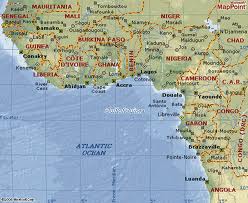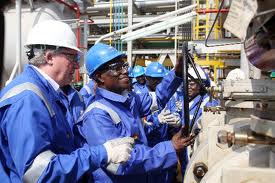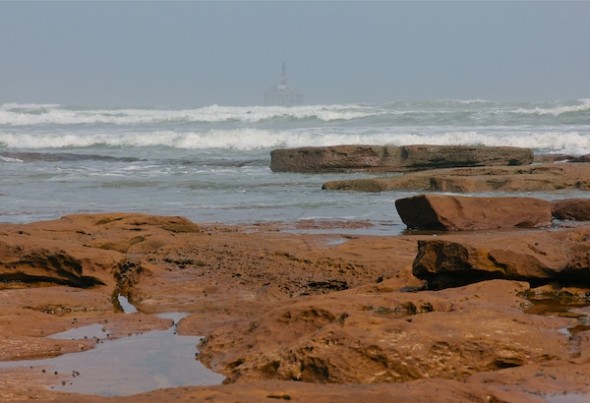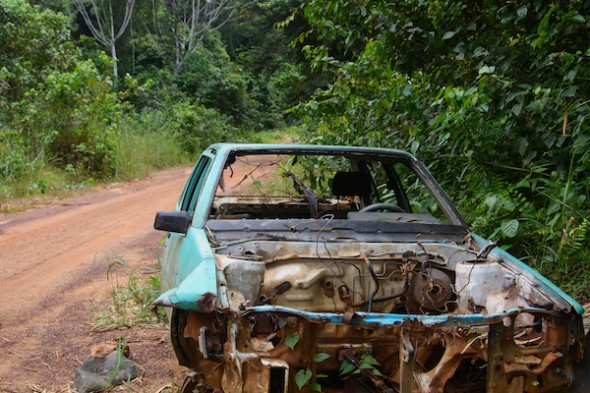Lloyd’s of London to Arctic would-be drillers: Slow down
The Guardian is reporting that Lloyd’s of London, the world’s largest insurance market, has voiced concern about proposed offshore Arctic drilling. The company says clean-up of any spill would present, “multiple obstacles, which together constitute a unique and hard-to-manage risk.”
Reading the article, several paragraphs jumped out because they could also be useful for policy makers in Africa, many of whom are jumping on the drilling bandwagon without having adequate safety and emergency response systems in place:
Richard Ward, Lloyd’s chief executive, urged companies not to “rush in [but instead to] step back and think carefully about the consequences of that action” before research was carried out and the right safety measures put in place….
Other than the direct release of pollutants… there are multiple ways in which ecosystems could be disturbed, such as the construction of pipelines and roads, noise pollution from offshore drilling, seismic survey activity or additional maritime traffic….
Key political risks in the Gulf of Guinea
Reuters has issued its annual report on “political risks” in the Gulf of Guinea. The report has little to do with how things are going for the people who live in the region — the focus is on political uncertainty that may impact investment. Nonetheless, it’s a useful rundown of the main industries and sources of instability across the region.
Piracy has been mentioned in this report for at least three years, but it’s moving higher up on the risk list. This year, the U.S. military presence also appears on the list. Although it is cited as a response to the lack of offshore security, an increased military presence could easily exacerbate instability in the region.
Ghana’s fishing communities fear oil spills…
…And rightly so.
Yesterday I wrote that Ghana has been producing oil from its offshore Jubilee field since December 2010, yet still lacks monitoring vessels, equipment and personnel.
Something else that’s missing: funds to compensate fishing communities in the event of a spill.
This video recounts the fears of the residents of Abuesi, a small fishing community near Sekondi-Takorad (a.k.a. “Oil City”). Travel up and down the coast, and you’ll hear the same fears echoed again and again.
What will happen when a village that is entirely dependent on its fishing operations for its survival is shut down by an oil spill?
Is Ghana really ready for oil?
Is Ghana ready for an oil disaster? It’s difficult to find officials who want to talk about the subject. Most prefer saying things like, “We learned many lessons from the Deepwater Horizon spill,” and, “It can’t happen here.” Truth is (and everyone knows this), a disaster can strike anywhere.
Ghana has been producing oil from its offshore Jubilee field since December 2010, yet still lacks monitoring vessels, equipment and personnel. The country has an “oil spill response plan” — on paper — but could Ghana actually respond to and deal with a significant oil spill?
This video and a new article published today on iwatch news explore the state of Ghana’s environmental regulation and emergency preparedness.
Gulf of Guinea: The new Wild West
Reuters ran a story several months ago on the key political risks of doing business in the Gulf of Guinea.
I posted the article then. The article has been updated and I’m putting it up once again. As I said when I originally posted this article, most coverage of the extractive industries (and cocoa, in the case of this article) is in the business pages and basically boils down to dollars and cents. What are the rewards, what are the risks?
The human side of the story is only of interest insofar as it impacts business and the investment climate. Ditto for the environment. What’s noteworthy here is that there is absolutely no mention of the the environmental risk of rapidly expanding drilling and mining. Kind of crazy when you consider that environmental mayhem will certainly lead to social unrest. Even from an investment perspective, one might think (wish?) that environmental concerns would be part of the risk assessment.
 DAKAR May 3 (Reuters) – A stretch of West Africa’s coast spanning more than a dozen countries, the Gulf of Guinea is a growing source of oil, cocoa and metals to world markets.
DAKAR May 3 (Reuters) – A stretch of West Africa’s coast spanning more than a dozen countries, the Gulf of Guinea is a growing source of oil, cocoa and metals to world markets.
But rising rates of piracy, drug smuggling, and political uncertainty in an area ravaged by civil wars and coups have made it a challenging destination for investors seeking to benefit from the massive resources.
The Gulf of Guinea runs from Guinea on Africa’s northwestern tip to Angola in the south and includes Nigeria, Ghana, Ivory Coast, Democratic Republic of Congo, and Cameroon.
Key political risks in the Gulf of Guinea

Ghanaian President John Atta Mills (second right) turns the valve to flag off first oil production at FPSO Kwame Nkrumah oil rig at the Jubilee field in Takoradi after flagging off production of oil on December 15, 2010. The country has raised its pump prices. AFP | AFRICA REVIEW |
Business news from Reuters. The Gulf of Guinea tempts investors, but the terrain is not without risk. I love business news — everything boils down to dollars and cents and risks are just part of doing business. Go somewhere else to find out why the area is so volatile. Maybe has something to do with all those profits that never seem to benefit local communities.
I’m reprinting this article nonetheless, because it is a snapshot of the region and what to watch for in the coming months. One note: The article mentions Ivory Coast and “political uncertainty”, but does not bring up the regional political calendar. This is an election year across much of the Gulf of Guinea and events in the Ivory Coast, Tunisia and Egypt may very well have repercussions on regional politics. (Consider Gabon, where demonstrators have been brandishing signs calling for President Ali Bongo to leave.)
Feb 1 (Reuters) – A stretch of West Africa’s coast spanning more than a dozen countries, the Gulf of Guinea is a growing source of oil, cocoa and metals to world markets.
But rising rates of piracy, drug smuggling, and political uncertainty in an area ravaged by civil wars and coups have made it a challenging destination for investors seeking to benefit from the massive resources.
The Gulf of Guinea runs from Guinea on Africa’s northwestern tip to Gabon in the south and includes Nigeria, Ghana, Ivory Coast, Democratic Republic of Congo, and Cameroon.
NEW ENERGY FRONTIER?
Gulf of Guinea nations produce more than 3 million barrels of oil per day — about 4 percent of the global total — mostly for European and American markets, with the bulk coming from OPEC-member Nigeria (2.2 million bpd).
Smaller producers include Equatorial Guinea (300,000 bpd), Congo Republic (340,000 bpd), Gabon (230,000 bpd), Cameroon (66,000 bpd) and Ivory Coast (40,000 bpd).
While many of the region’s producers are struggling to maintain output, oil companies believe the deep seas along the coast west of Nigeria could be a new frontier.
Ghana joined the ranks of West African oil producers in December and is expected to ramp up output to 150,000 bpd in the coming months. Further out, Sierra Leone and Liberia hope offshore drilling will spell oil riches for them as well.
Washington estimates the Gulf of Guinea will supply about a quarter of U.S. oil by 2015 and has sent military trainers to the region to help local navies secure shipping.
What to watch:




